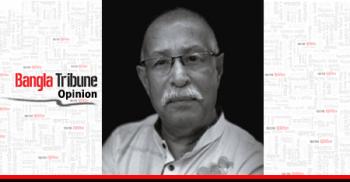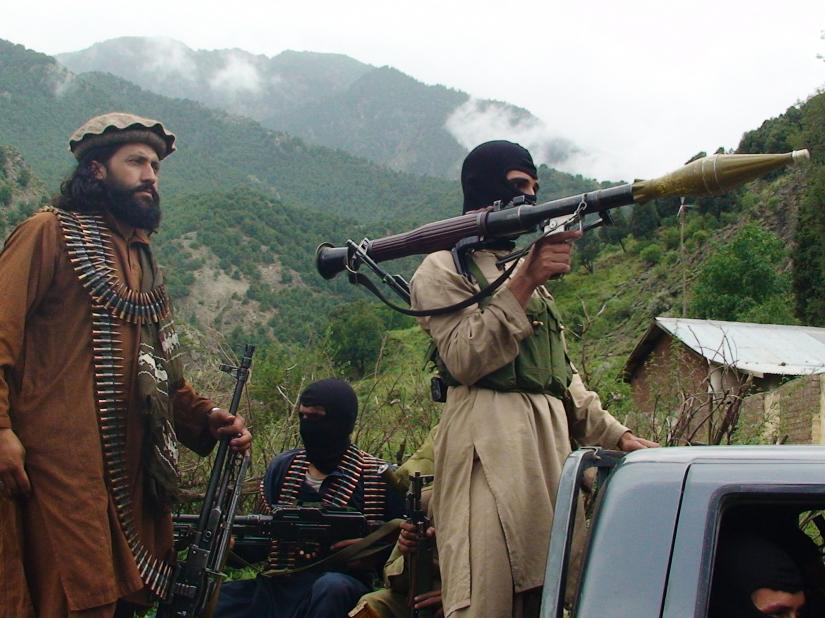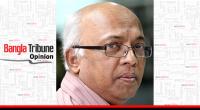 Several years ago an English newspaper Express Tribune published from Karachi, Pakistan demonstrated the courage to publish an article “Is Balochistan the next Bangladesh?” which was indeed mind-boggling.
Several years ago an English newspaper Express Tribune published from Karachi, Pakistan demonstrated the courage to publish an article “Is Balochistan the next Bangladesh?” which was indeed mind-boggling.
Recent international media, when reporting on Pakistan’s civil strife and guerilla attacks on Pakistan security forces, especially in Balochistan and Waziristan warns the authority that next Bangladesh is in the offing.
The fresh civil strife in Pakistan has rekindled interest among international media analysts to weigh against the incidents in Waziristan with the brutally violent birth of Bangladesh in 1971.
Pakistan’s leading newspaper’s political commentators and popular TV talk-show hosts have demonstrated their courage to be outspoken regarding the appalling human rights abuses committed by Pakistan military in Balochistan and Waziristan. They also refer to infamous crackdown ‘Operation Searchlight’, leading to bloody liberation war in Bangladesh.
The question remains why the Pakistan-based media, politicians and rights groups dare to speak up against Pakistan army's atrocities, the enforced disappearances, arbitrary detentions and torture of nationalists of Balochistan and Waziristan?
Such an outcry against these crimes against humanity has been heard time and again during the long jingoistic war between Rawalpindi’s top brass Generals and the nationalist leaders of Waziristan and Balochistan.
The Pashtun Tahafuz Movement or PTM was launched by human rights activist Manzoor Pashteen to address the grievances in Waziristan and Pashtuns living elsewhere in Pakistan. The Pashtuns have been bearing the brunt of the so-called "war on terror" for nearly two decades. When the US and its allies invaded Afghanistan following the 9/11 attacks, members of terror groups operating in that country passed the border with Pakistan and took refuge in the areas where Pashtuns reside. In response, the Pakistani military started combing operations to "clear the area from terrorists".
The Pashtuns have been bearing the brunt of the so-called "war on terror" for nearly two decades. When the US and its allies invaded Afghanistan following the 9/11 attacks, members of terror groups operating in that country passed the border with Pakistan and took refuge in the areas where Pashtuns reside. In response, the Pakistani military started combing operations to "clear the area from terrorists".
Pashtun Leaders and activists of the PTM, despite being a non-violent movement, are killed, injured, beaten, arrested or forced into hiding. Pakistan’s political discourse is showing echoes of the creation of Bangladesh, writes another journalist Abubakar Siddique in an article “Pakistan’s Pashtun Crackdown Echoes Bangladesh War”.
As Tarek Fatah, a Pakistan born Canadian journalist and writer often tweets, clearly Pakistan has not learned from the Bangladesh war debacle and instead they are committing similar crime against humanity in Balochistan and Waziristan.
The New York Times in a recent joint article contributed by Pakistani and Indian journalists Salman Masood, Zia ur-Rehman and Mujib Mashal says: “Now, the military seems set to make that prediction true, setting up a conflict that some observers are already comparing, if prematurely, to when Pakistan’s oppressed Bengali population broke away to form Bangladesh in 1971.”
Taha Siddiqui, an award-winning Pakistani journalist living in exile in France in an analysis in Aljazeera online writes, a disaster looms in Pakistan, if the grievances of Pashtuns, the second largest ethnic group in Pakistan and their legitimate demands remain unaddressed.
“In the past, a similar rights movement launched by East Pakistani residents eventually culminated into a movement for independence from Pakistan, and led to the creation of Bangladesh in 1971,” says an Aljazeera article “The PTM in Pakistan: Another Bangladesh in the making?”.
Saleem Samad, is an Ashoka Fellow (USA), recipient of Hellman-Hammett Award and also Bangladesh correspondent of Paris-based international media rights organization, Reporters Without Borders (RSF). Email: [email protected]
 Opinion
Opinion
30852 hour(s) 59 minute(s) ago ;
Morning 07:53 ; Wednesday ; Apr 24, 2024
Why media dubs civil strife in Waziristan with Bangladesh?
Send
Saleem Samad
Published : 16:09, Jun 11, 2019 | Updated : 16:48, Jun 11, 2019
Published : 16:09, Jun 11, 2019 | Updated : 16:48, Jun 11, 2019
0 ...0 ...
/hb/
Topics: Top Stories
***The opinions, beliefs and viewpoints expressed in this article are those of the author and do not reflect the opinions and views of Bangla Tribune.
- KOICA donates medical supplies to BSMMU
- 5 more flights to take back British nationals to London
- Covid19: Rajarbagh, Mohammadpur worst affected
- Momen joins UN solidarity song over COVID-19 combat
- Covid-19: OIC to hold special meeting
- WFP begins food distribution in Cox’s Bazar
- WFP begins food distribution in Cox’s Bazar
- 290 return home to Australia
- Third charter flight for US citizens to return home
- Dhaka proposes to postpone D8 Summit
Unauthorized use of news, image, information, etc published by Bangla Tribune is punishable by copyright law. Appropriate legal steps will be taken by the management against any person or body that infringes those laws.
Bangla Tribune is one of the most revered online newspapers in Bangladesh, due to its reputation of neutral coverage and incisive analysis.
F R Tower, 8/C Panthapath, Shukrabad, Dhaka-1207 | Phone: 58151324; 58151326, Fax: 58151329 | Mob: 01730794527, 01730794528


